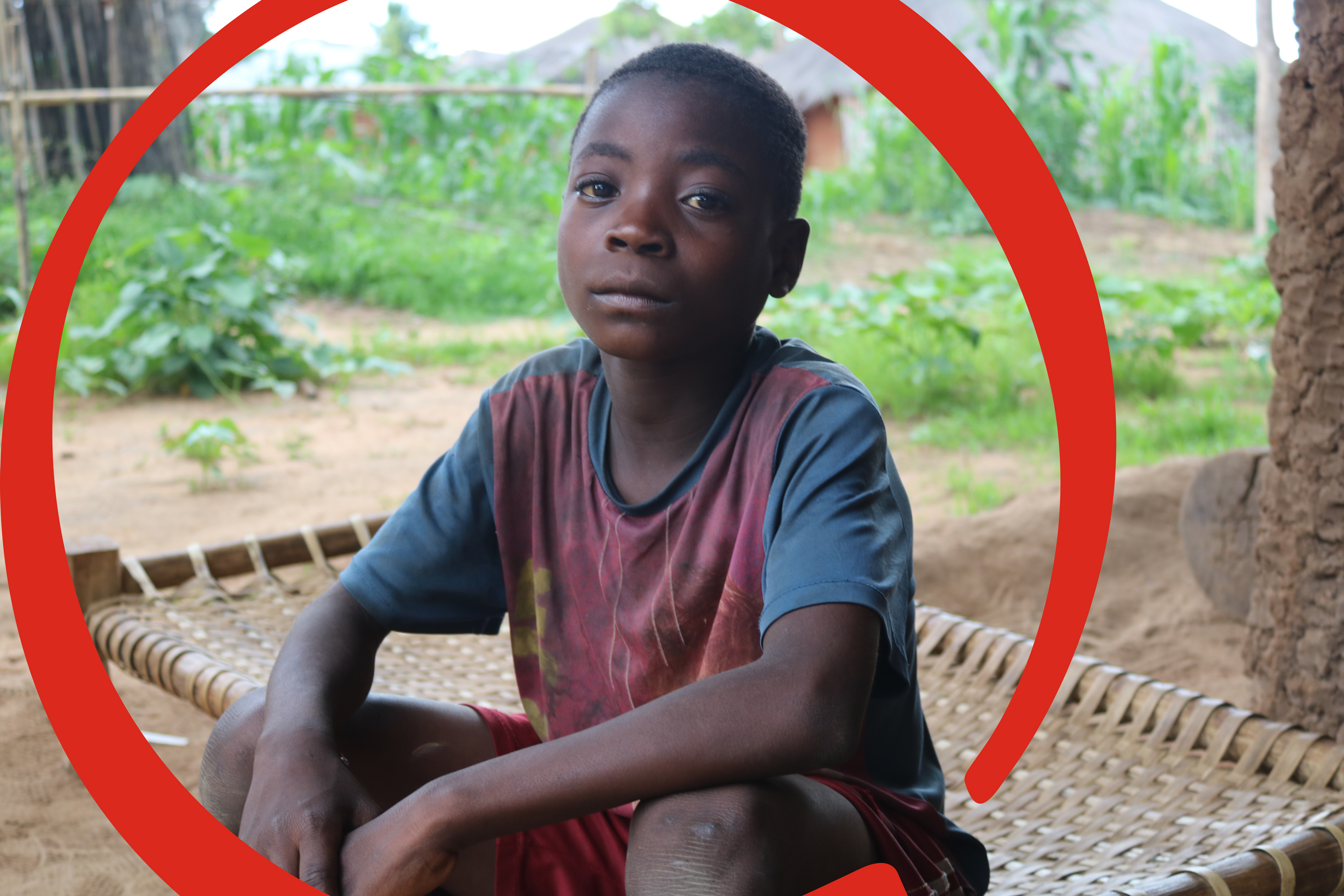Over 700 million children affected: 710 million children - that many are at risk from climate change
Children like Baptista from Mozambique are particularly affected by the climate crisis - now and in the future. But he is not alone: more than 700 million children are threatened by climate change. Urgent action is needed to better protect them and their families from floods, droughts or disease outbreaks.
 14-year-old Baptista from Mozambique is one of more than 700 million children who are clearly feeling the effects of climate change – and will be even more affected in the future.
14-year-old Baptista from Mozambique is one of more than 700 million children who are clearly feeling the effects of climate change – and will be even more affected in the future.
In brief:
45 countries particularly at risk: The children all live in the 45 countries most vulnerable to the effects of climate change
Threats posed by climate change: They are threatened by food shortages, diseases, water shortages or floods
Almost 3/4 of all affected countries in Africa: 70 percent of the countries are located on the African continent
An estimated 710 million children live in the 45 countries that are at the highest risk of suffering the impact of climate change, Save the Children warned today. Floods, droughts, hurricanes and other extreme weather events will have an especially deep impact on vulnerable children and their families.
Children in these countries will for example be impacted by food shortages, diseases and other health threats, water scarcity, or be at risk from rising water levels – or a combination of these factors.
The window to prevent catastrophic climate change is rapidly closing as the crisis is set to worsen unless urgent action is taken now, Save the Children said. As children’s present and future are at stake, they must be heard in the climate crisis–conversation and should be involved in shaping policies, the organisation urged.
"Many houses collapsed because of rain and strong winds."
Climate crisis drastically worsens the situation of the poorest
While all children are impacted by climate change, those living in poverty, conflict or hunger, or in disaster prone areas, will suffer most as they often are already deprived of their basic needs. Children in countries deemed at a “lower-risk” are facing threats as well, for example from forest fires, flooding, droughts and other erratic weather events.
Analysis by Save the Children also shows that:
- 70 percent of countries facing a high risk of climate impact are in Africa;
- Climate change impacts are worsening the already dire situation in Yemen, where conflict has created severe food shortages, leaving millions of children at risk of hunger;
- Children in Bangladesh are highly exposed to flooding, cyclones, and sea levels rise;
- Malaria and dengue fever already plague children in the Democratic Republic of Congo. Increasing extreme weather events can lead to new health risks while the health system is already limited.
If drastic action is not taken, the impact of the climate crisis will likely hit millions more children in decades to come, the organisation warned. Increasing climate shocks often make it a struggle for families to recover between each shock, especially in countries that lack social safety nets, pushing them further into poverty or forcing them to flee their homes.
The climate crisis is the largest threat to children and the realisation of their rights across borders and generations. The COVID-19 outbreak has already pushed millions of children and families into poverty and increased hunger and malnutrition. But flooding, hurricanes and droughts are also causing children to be malnourished
Ahead of the Climate Summit on Earth Day, Save the Children urges all governments to take immediate and drastic action to address climate injustice head on, and avoid further catastrophic impacts on children and their families. This includes:
- Acknowledging that the climate crisis is a child rights crisis that affects children first and worst.
- Increase climate finance, particularly for adaptation, with a specific focus on children in poorer countries, given as grants.
- Ensure a focus on children, especially from the most marginalised communities, at upcoming Climate events such as the Youth Summit in Milan and the COP26 in the Glasgow later this year. Children are equal stakeholders in addressing climate change, and their recommendations must be included in all climate-related policies;
- Scale up adaptive and shock-responsive social protection systems – such as grants for pregnant mothers and children – to address the increasing impacts of climate change on children and their families. More countries need to work towards their commitment in the Convention on the Rights of the Child to ensure every child is protected from poverty, for example by providing universal child benefits to improve children’s well-being and build resilience.